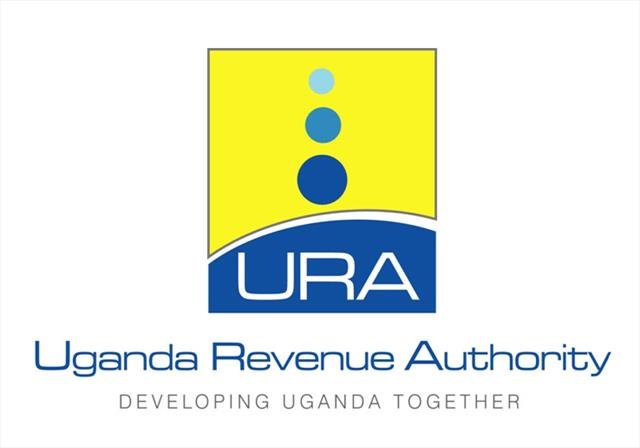In a significant policy shift aimed at digitizing tax administration and boosting compliance, the Ugandan government has tabled the Tax Procedures Code (Amendment) Bill, 2025, which proposes to use National Identification Numbers (NINs) as Tax Identification Numbers (TINs) for individuals. Unveiled through the Uganda Gazette on March 25, 2025, and now before Parliament, this move marks a milestone in the country’s tax modernization agenda.
This reform is part of a broader set of four tax bills announced by Minister of State for Finance Henry Musasizi, including the Income Tax Bill, Hides and Skins (Export Duty) Amendment Bill, and VAT Amendment Bill. The reforms promise more efficient tax administration, yet they raise critical questions about timing, feasibility, and impact on ordinary Ugandans grappling with widespread poverty, unemployment, and service delivery failures.
Under the proposed amendment, the National Identification Number (NIN), issued by the National Identification and Registration Authority (NIRA), will now double as the TIN for individual taxpayers. For businesses and organizations (non-individuals), registration numbers from the Uganda Registration Services Bureau (URSB) will serve this purpose.
Furthermore, government agencies and local authorities will be prohibited from issuing business licenses or authorizations to individuals without a NIN or to companies without a URSB registration number. This effectively ties access to formal business operations directly to national registration and taxation.
In addition, the bill introduces an interest and penalty waiver on tax arrears. Taxpayers with outstanding interest or penalties as of June 30, 2024, will be exempt if they clear their principal obligations by June 30, 2026. This is designed to promote compliance and ease the tax burden on struggling individuals and businesses.
The government’s official narrative emphasizes the need for consolidated taxpayer information, improved compliance, and increased revenue mobilization. Uganda has long struggled with tax evasion and under-collection, costing the country over UGX 5 trillion annually, according to the Ministry of Finance.
With the Uganda Revenue Authority (URA) expected to collect UGX 29.7 trillion in the 2024/25 financial year, plugging these revenue leaks has become an economic necessity. The reform also complements recent URA partnerships, such as with Global Voice Group (GVG), to implement systems like the Tax Information Management System (TIMS) and the Data Monitoring System (DMS). These technologies aim to cross-verify taxpayer data and reduce fraud.
The digital shift is also part of Uganda’s ambition to join other East African nations in strengthening domestic resource mobilization under global frameworks such as the African Union’s Agenda 2063 and the UN Sustainable Development Goals (SDGs).
What’s Good About the Reform?
- Consolidating identification systems is a major administrative win. Ugandans will no longer need to maintain separate numbers for taxation and civil identification, reducing bureaucratic hurdles.
- By directly linking every citizen’s legal identity to tax obligations, the government can track income, asset ownership, and business activity more effectively. This can dramatically increase tax coverage and reduce evasion.
- Uganda’s informal sector, estimated to contribute over 50% of GDP, often operates outside the tax net. By requiring a NIN for any business license or operation, the reform pulls more economic actors into the formal system.
- The interest and penalty waiver is a smart incentive to encourage individuals and businesses to come forward and clean their tax slates, potentially unlocking billions in previously uncollectible revenue.
- With accurate and centralized data, the government can better plan and allocate resources for public services, development programs, and infrastructure.
The Challenges
Many Ugandans, especially in rural and marginalized areas, lack access to NIRA services. Delays in obtaining or replacing IDs are common. This could exclude thousands from economic participation once the law takes effect on July 1, 2025.
It’s paradoxical to enforce compliance in a country where citizens lack basic services. From bad roads, poor healthcare, frequent electricity outages, to underfunded schools, many Ugandans question whether their taxes are being used effectively.
Tying all personal and financial information to a single identifier increases the risk of data breaches and abuse. Uganda lacks comprehensive data protection legislation, making citizens vulnerable to identity theft and surveillance.
There are fears that overzealous enforcement could lead to the harassment of small traders, boda boda riders, and market vendors—many of whom do not have national IDs or understand the new requirements.
Uganda’s economy is still reeling from the aftershocks of COVID-19, inflation, rising fuel prices, and high youth unemployment. For many, the priority is survival, not tax paperwork. The timing, therefore, appears tone-deaf to the economic suffering of average citizens.
Why Now?
- Revenue Pressures: With ballooning public debt and donor fatigue, the government is under pressure to generate domestic revenue.
- Digital Government Agenda: Uganda has been pushing for digital transformation in governance. The NIN-TIN integration is aligned with e-government ambitions.
- International Pressure: Global frameworks like the OECD’s Base Erosion and Profit Shifting (BEPS) project are compelling governments to tighten tax systems.
- Election Cycle: With the 2026 general elections approaching, the government may be seeking to clean up fiscal books and present a stronger economic record.
Conclusion
If successfully implemented, the reform could lead to greater accountability, improved government planning, and a more inclusive economy. The proposal to use the National ID as a Tax ID in Uganda is both revolutionary and risky. It reflects a government trying to modernize its tax regime and seal revenue leaks—but doing so at a time of deep economic discontent. With poverty, unemployment, and failing infrastructure as everyday realities for many Ugandans, the success of this reform hinges not just on technocratic execution, but also on political will, inclusivity, and service delivery.
For now, Ugandans will watch Parliament’s debate with cautious optimism—and lingering skepticism


